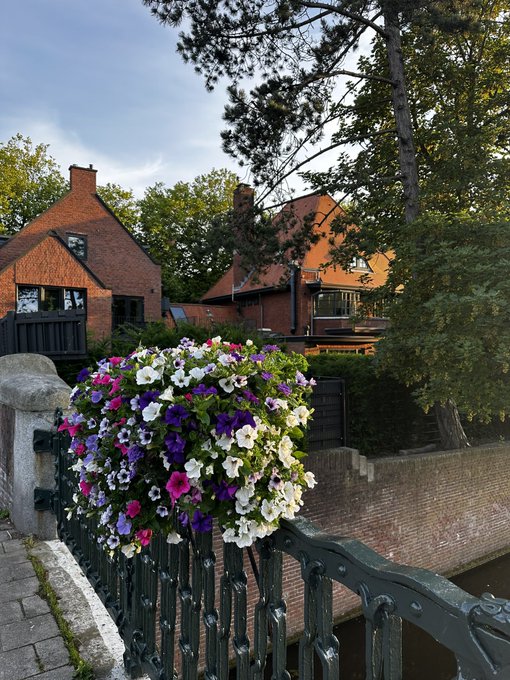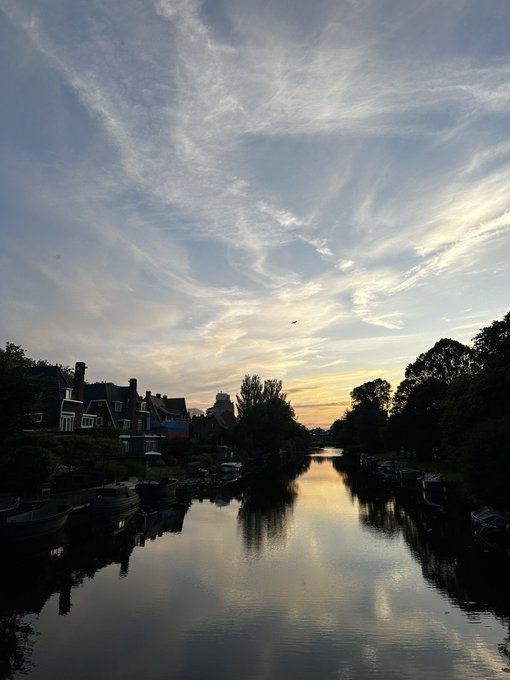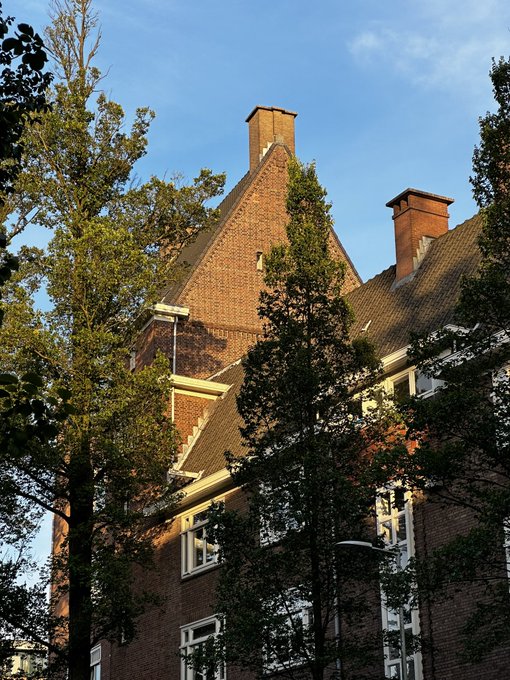Arrived in Netherlands but temporarily lived in Amsterdam today 🇳🇱 Excited to meet with you in Delft!
My First Top Conference Experience
This summer, I attended my first top academic conference, Robotics: Science and Systems, in Delft, Netherlands. Although I’ve participated in many conferences in China, this experience was entirely different. I feel incredibly fortunate that my first international conference was RSS—it was an unforgettable journey. This post focuses on the conference itself, while a follow-up will detail my tours in the Netherlands.

This summer, I attended my first top academic conference, Robotics: Science and Systems, in Delft, Netherlands. Although I’ve participated in many conferences in China, this experience was entirely different. I feel incredibly fortunate that my first international conference was RSS—it was an unforgettable journey. This post focuses on the conference itself, while a follow-up will detail my tours in the Netherlands.
Conference
Robotics: Science and Systems is the most renowned conference in the field of Embodied AI. Having a paper accepted at RSS is considered a significant milestone in our research community. Unlike other top conferences like CVPR or NeurIPS, RSS follows a single-track form, allowing attendees to connect deeply with researchers who share similar interests. This year’s RSS was hosted in Delft, Netherlands—a serene city known as the homeland of Vermeer and Delftware. Here, we truly spent a highly engaging and focused week of presentations, poster sessions, workshops and talks in the AULA of TU Delft.
Due to my itinerary, I arrived in Delft late in the afternoon after the opening ceremony, following a brief stop in Amsterdam. After registering, I jumped straight into workshops. The rushed schedule made it challenging to fully engage right away. In hindsight, I’d recommend arriving a day earlier to settle in and get into the right mindset.
Workshops
Workshops are the best place for networking and connecting with researchers sharing the common research interests with you. Also, chances are great that you can grab the professors that you may want to connect with at workshops. Workshops can offer a unique chance for you to interact directly with professors, discuss ideas, and explore potential collaborations. It is the best place for networking, especially if you are right in the PhD application cycle this year like me.
The talks at workshops are often more focused and in-depth compared to main sessions. Even if a topic feels unrelated to your research, it might spark new ideas or opportunities. I made it a point to step outside my comfort zone and attend diverse workshops—something I found incredibly rewarding.
In RSS, the workshops were intensely arranged on the first day and the last day of the whole week. Here are some workshops that I attended. If you are interested, you may find recordings of them from the websites given below. I think that should be already available on YouTube.
Owing to the fact that this article was done weeks after the conference, it’s hard to summarize the takeaways in a systematic ways. In the future, I’ll consider update ASAP during the conferences.
Oral/Poster Sessions
Oral/Poster Sessions are the most important part of your conference trip. Here is the time for you to sell your own works to the community. I think doing presentations in front of others is the most self-fulfilling and exciting part of a research cycle, especially when everyone gazing at you, listening to your introduction, and giving back their comments at what you’ve achieved.
As a junior in the community, I’m afraid it’s not appropriate for me to give advice on how to deliver a good and professional presentation. During the oral sessions, we have witnessed many splendid presentations, like UMI, which are very worthy of learning. But I think at least there’s something that I did great as a newbie during the conference, like confidently selling my own work and actively reaching out to others to establish new connections. During this process, many new collaboration ideas and opportunities also came up to me afterward, which is also one of the main reasons why I thought of this trip very rewarding.


My poster session was scheduled for Friday morning—the final day when many attendees often leave for their travels. Despite this, new friends and professors I had met earlier came to my session, which meant a lot to me. Their support made the experience truly special.
Did I feel nervous? Yes, of course, I did feel very nervous very initially, as anyone would for their first international conference. But after spending a few days interacting with everyone, my nervousness gradually faded, as I began to see everyone who visited my poster area as a friend. Actually, everyone that I met during RSS was really very friendly and insightful. Thanks to the positive reinforcement, I’m confident I’ll perform even better at my next conference, and, of course, my submission for RSS 2025 is already in progress.
Last words
Attending RSS this summer was one of the best decisions I’ve ever made. Earlier this year, I faced setbacks that left me questioning my path, including the disappointment of missing a U.S. summer research opportunity due to some school administrative rules. My business visa was sent back to me just one day before my flight because of the summer holiday. Besides, this trip was fully funded by myself and I took a week’s of unpaid leave for it. But I finally came and I really appreciated that I came. It gave me a period of time to refrain myself from the laborious work and depression, and get a deep refresh of my mind, like a reboot of myself.
RSS wasn’t just a conference for me; it was a turning point. It gave me the clarity and motivation to move forward and seek new collaborations. I feel grateful for this experience and for everyone who supported me along the way. Wish I could come to LA for RSS 2025 next year!


